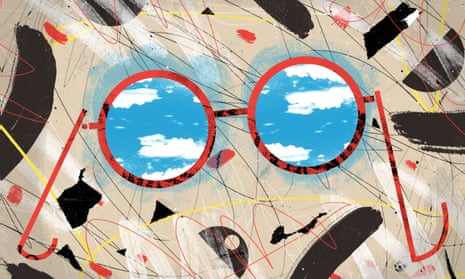The Distortion of Reality Through ‘AI Slop’
The modern information ecosystem is being mined by big tech for profit, resulting in a perverse reality distortion. Two parallel image channels dominate our daily visual consumption: real pictures and footage of the world, and ‘AI slop’ – low-quality content with minimal human input. AI slop ranges from banal images of celebrities and fantasy landscapes to pornified displays of women. This content infiltrates social media timelines and WhatsApp messages, blurring and distorting reality.
The Politicization of AI Content
A new genre of AI slop has emerged in the form of right-wing political fantasy. YouTube videos feature made-up scenarios where Trump officials prevail against liberal forces. The White House account on X posted an AI-generated image in Studio Ghibli style, depicting a Dominican woman being arrested by ICE. Chinese AI videos mocking overweight US workers on assembly lines prompted a response from the White House spokesperson. This politicization of AI is an extension of traditional propaganda, now democratized and ubiquitous.
The Impact of AI Slop on Visual Culture
Prof Roland Meyer notes that generative AI is ‘structurally conservative, even nostalgic,’ trained on biased pre-existing data. This is evident in AI-generated images of white, blond families presented as desirable futures by neofascist online accounts. ‘Trad wife’ content summons a throwback world where men can immerse themselves in nostalgic hierarchies. White supremacy, autocracy, and fetishization of natural hierarchies are packaged as nostalgia for an imagined past, described as the new aesthetic of fascism.
The Consequences of AI Content Overload
The torrent of AI content leads to desensitization and overwhelming of visual palates. The constant exposure to AI images, from nonsensical to ideological, changes how information lands. Real-world events, such as US politicians posing with deportees or people suffering in Gaza, become part of an infinite stream of violating images. The result is profound disorientation – a feeling that everything is both too real and entirely unreal.
The Paralysis of the Attention Economy
The attention economy’s trivialization and provocative brevity create a grand circus of excess. Serious content is presented as entertainment or visual elevator music. AI renderings of political figures as caricatures or soothing images for stress relief become indistinguishable from real information. The algorithm feeds users more of what it deems interesting, immersing them deeper into subjective worlds rather than objective reality. This results in a disjuncture where the sense of urgency and action is blunted, leading to a new way of sleepwalking into disaster – not through lack of knowledge, but through paralysis caused by the perverse ecosystem.

The author, Nesrine Malik, a Guardian columnist, highlights the issue of AI slop and its impact on our perception of reality. As AI content continues to proliferate, it’s essential to recognize its potential to distort our understanding of the world and its events.


